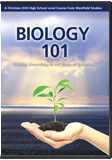Amniotic Stem Cells—A New Era?
A team of researchers from Wake Forest University School of Medicine and Harvard University School of Medicine recently published a report on a new development in the ever growing field of stem cell investigation. This study reported on the group’s research on stem cells isolated from amniotic fluid. It was found that these “amniotic-fluid stem cells” (AFS) had the ability to transform into many different tissue types found in the body.
While it had been known for years that stem cells could be found in amniotic fluid, it had not been determined to this point the extent to which these cells could differentiate. That is, researchers did not know which, if any, different tissue types could be produced from this type of stem cell. As it turns out, AFS are “pluripotent,” that is, each stem cell has the potential to develop into many different tissue types. They have been stimulated to transform into liver cells, nerve cells, cells that line blood vessels, and cells which are the precursors of muscle and bone. In one laboratory AFS were transformed into structures found in kidneys.
The results reported represent a breakthrough in stem cell investigation. Now there is apparently a source of pluripotent stem cells that would not result in the destruction of embryos. AFS can be collected via amniocentesis, which involves sticking a needle into the amniotic sac and removing fluid. One percent of cells in an amniotic fluid sample are stem cells. Even more encouraging is the finding that this type of stem cells can also be recovered from the placenta at the time of delivery, thus forgoing the risk of an invasive procedure to obtain the cells.
Many proponents of stem cell research have long suggested that embryonic stem cell lines would provide the most potential benefit to mankind. The presumption had been that embryonic stem cells have the most potential for differentiation, that is, they could ultimately be stimulated to form any type of body tissue. In actuality, most of the tissue types in the body have been produced with the use of adult stem cells. To date, essentially every significant therapeutic success in this arena has been with adult stem cells.
With AFS there now appears to be a third option. These cells are more mature than embryonic stem cells. Even so, this new research indicates that they have lost little, if any, ability to potentially differentiate into many, if not all, types of tissues. This degree of maturity may account for another apparent advantage of AFS. These cells do not appear to present the risk of developing tumors. In contrast, the growth of embryonic stem cells is sometimes erratic and at times uncontrollable to the extent that they will form tumor cells. AFS have not shown any predisposition toward malignant transformation. Obviously this is a major advantage for AFS.
AFS appear to be very easy to work with in the laboratory. They seem to grow well and have a long life span, reportedly significantly longer than adult stem cells in culture.
While we will need much more investigation into this area, work with AFS appears to be very promising at present. The ability to easily collect and isolate viable stem cell populations is a giant step forward. Knowledge that these cells have the ability to transform into so many tissue types is welcome. The promise, if fulfilled, that this technology would be available without the destruction of human life is priceless.
Recommended Resources

Answers in Genesis is an apologetics ministry, dedicated to helping Christians defend their faith and proclaim the good news of Jesus Christ.
- Customer Service 800.778.3390
- © 2025 Answers in Genesis







